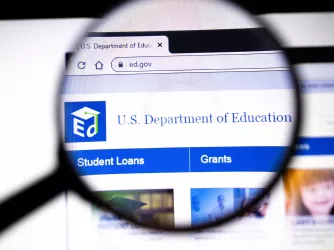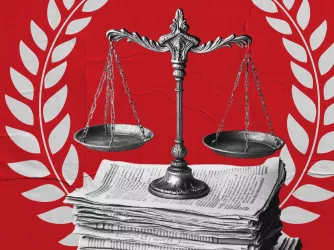Table of Contents
‘BuzzFeed’ Article Makes Transylvania U. Forget Its Own Slogan, Mission Statement

Transylvania University, a private institution in Kentucky, was caught backpedaling (ineffectively) last week after it asked students not to remark on a recent BuzzFeed article—a request that plainly contradicts the university’s own slogan, mission statement, and written policies enumerating “Student Rights and Responsibilities.”
Last Thursday, BuzzFeed writer Tracy Clayton authored a post titled “A Black Girl’s History With Southern Frat Racism,” which detailed Clayton’s experience at the university in the early 2000s. Soon after, Transylvania’s Director of Student Involvement and Leadership Shane McKee emailed students in the Greek system about Clayton’s article.
Clayton was forwarded a copy of McKee’s email, which read in part:
At this time we are asking that you do not comment about the article for the time being on any social media platforms - regardless of your stance or opinion on the matter. We also ask that you make us aware immediately if you or any other member of our community is contacted by a member of the media regarding this matter.
In response to students’ rightful disapproval of McKee’s email, Transylvania’s Vice President for Marketing and Communications Michele Sparks wrote on Twitter that the university was “not forbidding any student from posting/sharing.” She then told BuzzFeed that Transylvania “would never seek to censor [its] students.” In the same statement to BuzzFeed, though, Sparks admitted that the university had indeed “asked … Greek students to refrain from commenting.”
At first glance, the two statements seem flatly incompatible. At second glance, maybe Sparks simply means that the email was a request—not a demand—for restraint. Here’s the thing though: Most requests don’t come with a suggestion to immediately report to the authorities when another person might not plan on complying. It is understandable, then, that students were under the impression that commenting on the article could lead to discipline.
And it’s understandable that students were confused about where Transylvania stands on free expression. The university boasts the following slogan at the top of its website: “Question everything. Accomplish anything.” Its mission statement declares that the university “prepares its students for a humane and fulfilling personal and public life by cultivating independent thinking, open-mindedness, creative expression, and commitment to lifelong learning and social responsibility in a diverse world.” Independent thinking, eh?
That’s not all. The Student Rights and Responsibilities section of the Student Handbook (which I could not find on its website, but which is excerpted generously in the Faculty Handbook) states unambiguously:
Students are free to discuss, express opinions, and to hear expressions of diverse opinions. As part of the freedom to learn, students have the right to hear the widest expression of enlightened opinion available to them.
[...]
It is recognized that free speech is essential in a democratic society. Students are free to discuss and debate ideas and opinions in the spirit of free inquiry.
Transylvania’s stated limits on free expression (listed in the next sentence) include only acts that cause physical damage or injury, interrupt the business of the university or its community members, or are otherwise prohibited by law. There’s no reason to think that social media posts in response to Clayton’s article would approach these limits. Even if some social media posts went beyond the traditional limits of free speech (e.g., true threats), that would not warrant a broad ban on public responses to the article.
Yesterday, Lex18.com reported that Transylvania has released another statement on the controversy. While the university’s statement may allay concerns that it is not taking seriously race-related issues on campus, it does nothing to address the school’s surprise gag order on students. Nor does it declare the message of Thursday’s email to be rescinded.
So are students allowed to speak freely about the article now? It’s not clear.
Transylvania needs to issue one more statement, this time reaffirming in clear terms that students do not have to self-censor or tattle on their friends for speaking to the media. And if the university is planning on abiding by its “Student Rights and Responsibilities,” it should proudly post it somewhere that students can easily find it.
Recent Articles
FIRE’s award-winning Newsdesk covers the free speech news you need to stay informed.

As compliance deadline looms, colleges must resist censorship — and the feds must provide more clarity

This town fought residents over political yard signs — now it’s paying the price

Alex Kozinski on JD Vance’s censorship speech — First Amendment News 459
